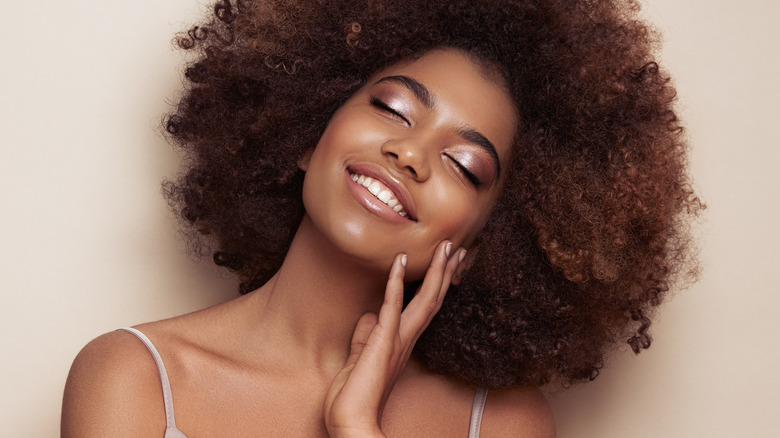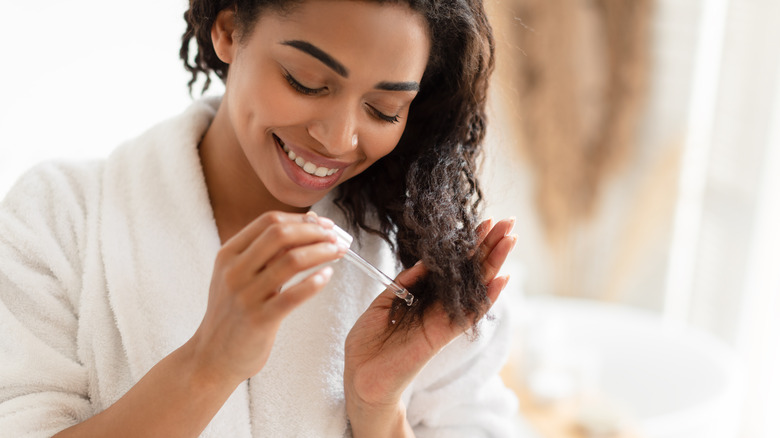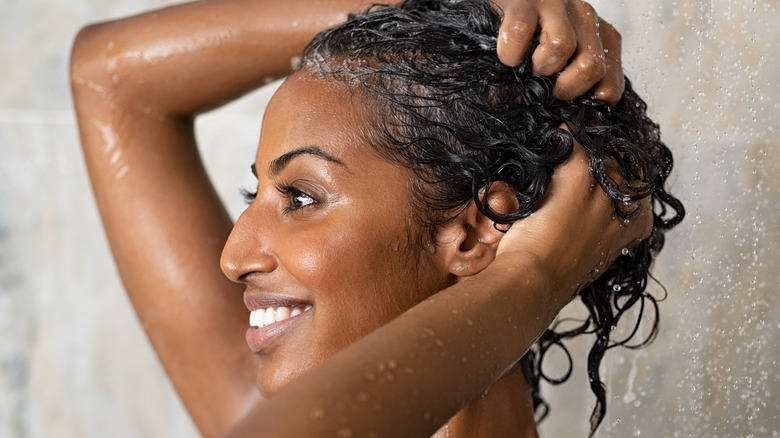Hair Masks Vs. Hair Oils: Which Are Better For Natural Hair?
We may receive a commission on purchases made from links.
From plopping to frizz-fighting dental floss, there is no shortage of hair trends on social media. However, it can be hard to determine which products and techniques actually work. Recently, there has been some debate about whether hair oil or hair masks are better for natural hair. If you're not game for slathering on a plethora of products to figure out which is best, don't worry! We've investigated the trend and are happy to let you in on the secret – hair masks are often better for natural hair than hair oils.
Before we go any further, here are a few need-to-know basics. Anyone can use hair masks or hair oils. However, these products have been trending lately in the space of Black hair care and tress care for people of color. Natural hair, especially gorgeous 4C hair, doesn't hold onto moisture easily. This means that when it's wash day, you might need a few extra products to pamper your delicate coils, helping to reduce frizz and tangles while nourishing your locks.
Enter hair masks and hair oils; two of the most popular options for those with natural hair interested in cocktailing products.
What are hair oils?
There are a variety of oils you can apply to your tresses, a process known as hair oiling. Popular options often rely on natural ingredients like argan oil, coconut oil, and Jamaican black castor oil. These solutions are worked into your hair somewhere during your wash routine.
Generally, the oil is only applied to your scalp and the ends of your hair. As of late, content creators have been praising hair oils for their moisture retention capabilities, as well as their touted powers of hair growth. That being said, the technique of hair oiling has been around for ages in Black and South Asian communities, meaning that even though hair oiling hashtags have recently exploded, the process never truly fell out of style.
Although, not all natural hair experts are ready to run to the store for oil products. Some advise that hair oils aren't as conditioning or hydrating as a hair mask. Furthermore, they argue that hair oils don't penetrate all areas of your locks as well as a mask does. Although, it's important to note that not all hair types or levels of damage need something as intense as a hair mask. If your locks are only slightly dry or frizzy, an oil might be just the pick-me-up your strands need.
What is a hair mask?
A hair mask can be thought of as a deep conditioning treatment. It's ideal for dry, brittle, or damaged hair. Why? Because its combination of ingredients claims to help not only hydrate your hair, but nourish it too. Those with natural hair claim masks can increase shine, promote thickness, decrease itch, and encourage length. Hair masks are applied from root to tip, unlike hair oils. Covering all your strands in a mask helps it to penetrate the hair shaft to encourage health from within while also conditioning the outer shaft for shine and smoothness.
Hair masks contain naturally-derived and synthetic ingredients that condition, hydrate, and nourish. They can include butters, silicone, plant extracts, and, you guessed it — hair oils. There are different masks for various hair concerns, such as Mielle's Rosemary Hair Mask, which contains natural products like rosemary and sesame seed oil to strengthen, restore, and hydrate. Of course, you can always DIY a mask like Priyanka Chopra's time-honored yogurt, honey, and egg mixture to create your own customized hair care.
Ultimately, your hair type and concerns play a big role in selecting products. However, masks remain the easiest all-in-one solution for various hair needs and types. There are so many kinds of hair masks to choose from that one is bound to be perfect for you. Whether you're looking for damage recovery or simply to reclaim your curls from frizz, chances are a hair mask can solve your beauty woes.


